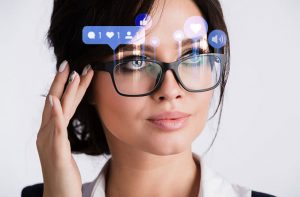It’s no secret that the healthcare industry is experiencing a huge shift in the wake of the pandemic. Many hospitals are racing to catch up with the newly developed tech that has come out of this unprecedented time, and the result of these changes is sometimes hard to pinpoint. Some companies have aimed to alleviate some of the challenges associated with virtual healthcare. Among these is a new pair of augmented reality goggles set to enhance the information storage and accuracy of doctor’s visits.
These smart glasses, developed by ISACA, are purposed for recording a virtual visit and storing interactions and patient information directly to a cloud that can be later accessed by doctors or patients. The AI used can even filter through mass amounts of data to pinpoint the exact information about a patient a doctor may need in order to administer care.
With the utilization of this technology, doctors would not have to worry about note-taking or record-searching for patient information and could simply access the glasses’ data and even share it with colleagues a thousand miles away, to more comprehensively assist in patient diagnosis. The glasses also have the capability to monitor heart rate and oxygen levels, which is valuable in identifying pre-existing signs of COVID infection, potentially lowering the amount of infected people showing up for in-person visits.
Along with all of the implications this technology has for patient interaction, it may also make a lasting difference for hospital professionals in training medical students. The hands-free mode of recording data can be used to broadcast surgeries and treatment procedures in real time or remotely, giving reference material to students as needed.
Though these glasses would serve as an important piece of technology to doctors, it may still be a while before we see them come to market. As of yet, there is a radical boost needed for the cybersecurity of such a venture, as all of the data will be stored on cloud servers, which have historically had their weaknesses exploited by hackers. There is also the concern of integration; there are many new products entering the market with promise of being the best or most efficient, and only time will tell which will live up to their promises.
Whatever the future holds, these glasses are a promising new addition to health tech and have the potential to help doctors significantly magnify their capabilities.























